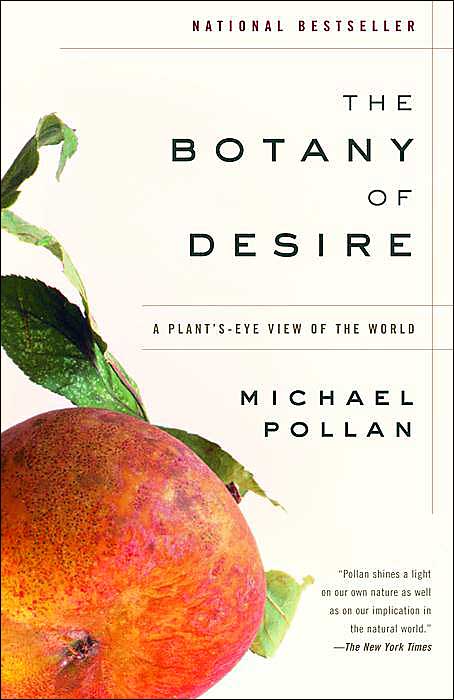 Humans and plants have had a close and interrelated history. In The Botany of Desire by Michael Pollan, the author discusses history to show how mutually influential plants and humans are. He illustrates this using four influential plants for his examples, the apple, the tulip, marijuana, and the potato. All of the plants are said to satisfy different human desires, sweetness, beauty, intoxication, and control, respectively.
Humans and plants have had a close and interrelated history. In The Botany of Desire by Michael Pollan, the author discusses history to show how mutually influential plants and humans are. He illustrates this using four influential plants for his examples, the apple, the tulip, marijuana, and the potato. All of the plants are said to satisfy different human desires, sweetness, beauty, intoxication, and control, respectively.Michael Pollan is well known for his books about plants. This one is certainly interesting and makes for a light read, but some of it can seem strange, and indirect. For example, his examination of the potato, seems like an afterthought, an attempt to round out the book by adding the desire “control” to the human picture (Obviously his own little bit of the dominator culture). In his introduction, he makes his case that plants are as important as people very strongly and convincingly. This irritated me enough to wait until the last week of summer to pick up the book again. However, the force of his introduction is lost during the rest of the book, making it much more dispassionate and unfocused. As a history of these specific plants, the book is certainly interesting and somewhat readable, but in terms of revolutionizing the view of plants, it has a way to go.
~Timothy Leary
I would agree with the author and say plants are as important as Humans if not more important. How else would we have the means to survive with out them?
ReplyDelete-Fidel Castro
I think the author's theory is really interesting. I had never really thought of the relation between plants and people in that way before. However, the book seems like it could have gotten monotonous at some points. Is this true?
ReplyDelete- Audrey Hepburn
Fidel Castro: We could not survive without plants, but what Pollan tries to say is ridiculous. He says that plants are in charge of us, they are consciously using us in order to further their own goals. We are changing for them, not the other way around. This theory ignores artificial selection, the method that we use to domesticate plants and animals for our own benefit.
ReplyDeleteAudrey Hepburn: The author's theory is interesting, but it doesn't hold water. The book is not the best written book I have ever read either. Pollan writes many irrelevant and illogical things. He tries to use metaphors to force round pegs through square holes, and it shows. Not only that, but he has not done enough research, and in his attempt to be profound, he is naive.
~Timothy Leary
I agree with Audrey, the author's theory is very interesting and now that I've heard it, it seems very obvious to me. However, due to the description I'm sure I wouldn't be able to put up with reading the book but the topic is still rather intriguing.
ReplyDelete-Vanilla Ice
I also believe that the topic is intriguing and I think the author adds a little light humor by using marijuana as one of his main components. This book sounds interesting but I don't think its at the top of my list.
ReplyDelete-Lady GaGa
Plants are not as important as humans nor do they control us. Sure they provide us with necessary resources and help maintain the human race but seriously michael pollan go eat a fruit and stop writing about them.
ReplyDelete-guy fawkes
I'm glad you chose this book, and I was confident that you would have enough of a critical eye to really examine his contention that plants change to suit our interests. It's very odd.
ReplyDeleteNice work!!
Mrs. McCabe
Wow, this book seems very interesting especially because it brings humans and their environment together. A book on fruits seems a little odd, but this one seems pretty intriguing!
ReplyDelete-Confucius